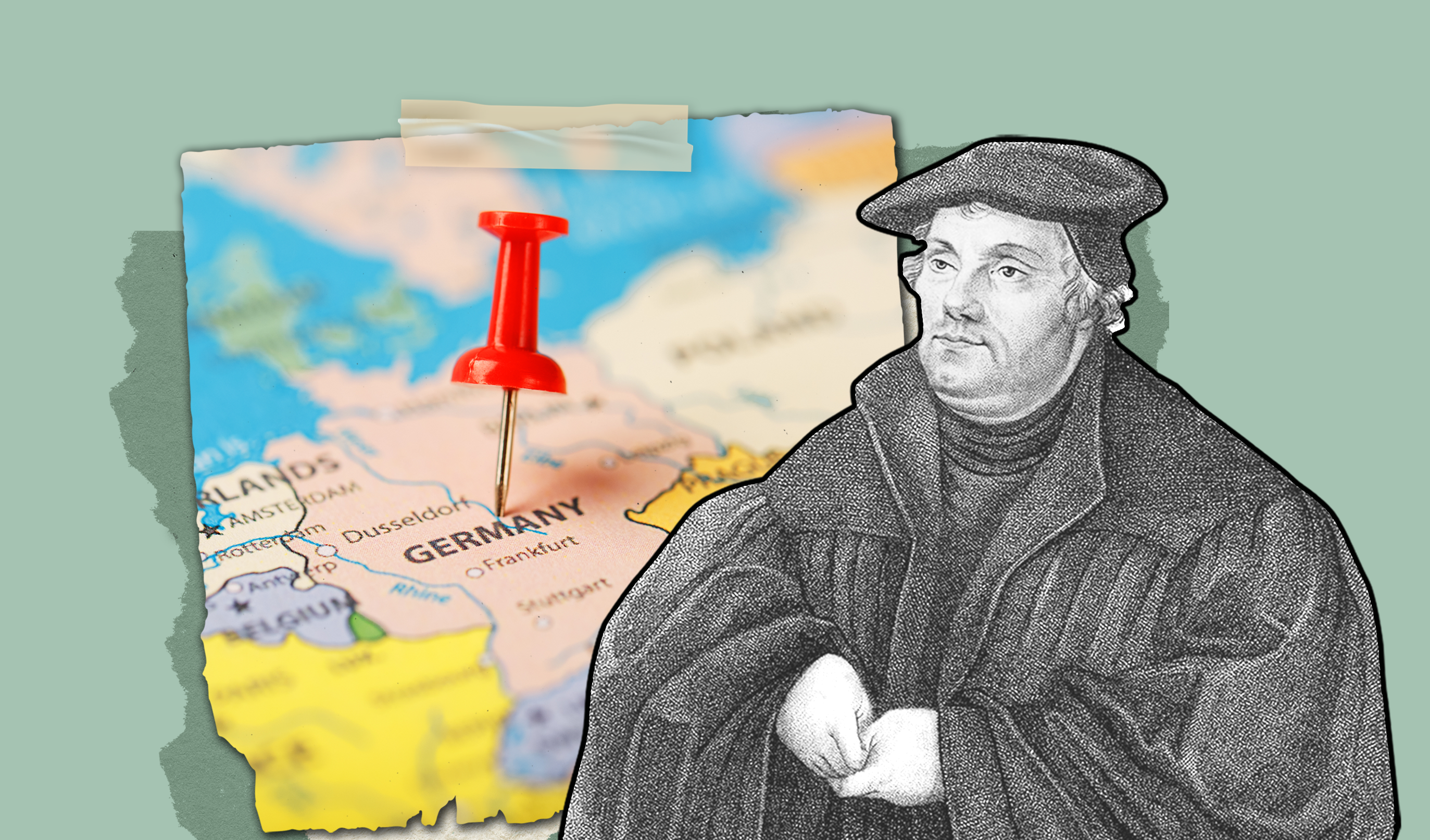Happy Reformation Day!
by Robert Mitchell

October 31, 1517 marks the beginning of a movement that ultimately became known as the Protestant Reformation.
On Oct. 31, children and adults will again indulge in the pagan custom of Halloween. But did you know that a history–changing event known as the “Protestant Reformation” marks the same day?
“Reformation Day” commemorates the moment when, in 1517, a priest and scholar named Martin Luther boldly approached the Castle Church in Wittenberg, Germany and nailed a list of 95 grievances to the front door. Religious leaders and congregants were stirred; a spiritual movement began.
Luther used, what became known as his “Ninety–Five Theses,” to effectively protest these wrongs against the Catholic church, most notably “papal indulgences,” or the alleged forgiveness of sins in exchange for money given to the church.
Luther believed that men and women were justified (made right with God) by grace alone, in faith alone, in Christ alone, through scripture alone, to the glory of God alone. These five statements or “solas” were the bedrock of that protest and are still widely taught today.
Luther’s life was reportedly changed by Romans 1:17, “The righteous shall live by faith.”
He also was influenced by other verses, including Ephesians 2:8–9: “For it is by grace you have been saved, through faith—and this is not from yourselves, it is the gift of God—not by works, so that no one can boast.”
Luther taught that we find salvation totally by grace (unmerited favor) and good works don’t save us, but instead are an outward manifestation and confirmation that we are spiritually transformed. Christ’s sinless life and death on the cross for our sins makes us perfect in the eyes of God.
2 Corinthians 5:21 says, “God made him who had no sin to be sin for us, so that in him we might become the righteousness of God.” The Protestant Reformation would sweep like wildfire from Germany and be carried on by Ulrich Zwingli, John Calvin, John Knox, and many others. Luther’s Protestantism also influenced the Puritans who came to North America in the early 17th century. Luther certainly wasn’t the first to run afoul of church authority.
He joined a long list that included Jon Hus and John Wycliffe, who purportedly translated the Latin Vulgate, a late 4th century Latin translation of the Bible, into English.
Today, Luther’s legacy lives on in Protestant churches world-wide and his influence was even felt in the formation of The Salvation Army.
One of the early reformers to have a profound impact on Luther was Hus, a Czech priest who was burned at the stake as a heretic (non–conformist) in 1415—68 years before Luther was born.
The name “Hus” is translated “goose” in Czech. An eyewitness to the execution reported that Hus, while dying in the flames, said “You can cook this goose but within a century a swan shall arise who will prevail.” His words came true when Martin Luther was born 68 years later and nailed his theses to the door 102 years after Hus was martyred.
Hus also inspired the founding of the Moravian church, which in the 18th century sent missionaries around the world. The Moravians, German Protestants, are widely acknowledged as the first Protestants. English evangelist John Wesley was heavily influenced by the piety of the Moravians.
Wesley’s “Aldersgate Experience,” in which he notes his “heart was strangely warmed,” occurred in a Moravian meeting in London on Aldersgate Street. Wesley had gathered with others to read the works of Martin Luther.
“I do think Wesley was one of the uncredited reformers,” says Salvation Army Envoy Steve Bussey. “In fact, I think he is by far the most significant influencer that formulated evangelicalism. [Jonathan] Edwards and [George] Whitefield did play a part—but Wesley codified and scaled it more than anyone.”
Under 100 years after Wesley’s death in 1791, William Booth founded The Salvation Army. Its doctrines are distinctly Wesleyan. Booth, as a young man, attended the Methodist church, founded largely on the teachings of Wesley and his brother, Charles. Booth was later a Methodist preacher before founding The Salvation Army in 1865.
“To me, there was one God, and John Wesley was His prophet,” Booth said.
So, as we reflect on the importance of the Protestant Reformation and Reformation Day, let us equip ourselves to be bold but loving sharers of our faith.
Five Solas
The message of the Reformation was summarized in five simple Latin phrases:
Sola Gratia (grace alone): People are saved by the grace of God alone. (Ephesians 2;8-9).
Sola Fide (faith alone): People are saved through faith alone in Jesus Christ. (Ephesians 2:8-9, John 3:16).
Solus Christus (Christ alone): Jesus Christ alone is our Lord, Savior, and King. (Acts 4:12, John 3:16).
Sola Scriptura (Scripture alone): The Bible alone is our highest authority, not church tradition. (Timothy 3:16-17, 1 Thessalonians 2:13).
Soli Deo Gloria (to the glory of God alone): People live for the glory of God alone. (Psalm 115:1).
Read more from the latest issue of saconnects.

